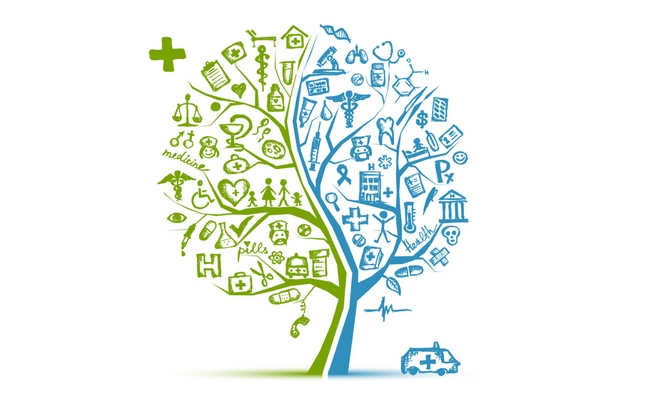Need a conversation starter at your next family gathering? During your next get together, why not bring health into the conversation?
Now, we’re not suggesting you spend hours chatting about the ins and outs of everyone’s health issues. But it is a good idea to know your family’s medical history. Take a little time when your family’s gathered around to get an accurate picture of that history.
Why is it important to know about your family’s health? There are many reasons, but a family medical history can help identify whether you (and future generations) are at higher risk of developing conditions such as heart disease, stroke, cancers, diabetes, and even sickle cell anemia or cystic fibrosis.
While the simple fact that a family member has a disease doesn’t mean you will get it, too, knowing that there’s a history of a certain medical conditions allows you and your doctor to take steps to prevent the condition. If, for example, you have family members who’ve had colorectal cancer, your doctor may recommend beginning screening colonoscopies at an earlier age and having them more frequently, as well as practicing healthy lifestyle habits.
So, how do you collect your family’s health history? Read on.
Gathering Your Family’s Medical History
To gain an accurate picture of your family’s health, you ideally want to collect information from at least three generations. This should include your children, your siblings, your parents, your aunts and uncles, your nieces and nephews, your grandparents, and your cousins.
The easiest way to gather the information you need is to simply talk with your relatives about their health. You could have these conversations when the family is gathered together at the holidays or for another occasion, or you could have one-off conversations with individual relatives.
The essential question you’re asking is: “Have you had any medical problems?” But you want to go beyond that to gain good insight into the family’s history. For each relative, you’ll want to note:
- Gender
- Date of birth (and date of death, if applicable)
- Ethnicity
- Medical conditions, as well as the person’s age when diagnosed
- Lifestyle habits (such as diet, exercise habits and tobacco use)
For women, you may also want to ask questions about their pregnancies, paying particular attention to any complications they had.
Once you’ve gathered this health information, you’ll want to collect it and share it with your family members.
The Surgeon General offers My Family Health Portrait as one option for collecting information.
Just knowing your family’s medical history isn’t enough, either — you need to share the information you gather with your physician. Knowing your family history, along with your own medical history, will help your doctor make informed decisions and recommendations related to your health.
Want to go a step further than simply gathering your family’s health history? You can gain additional information about your risks for certain conditions, including cancer, through genetic testing. Learn how a genetic test for cancer is performed.







